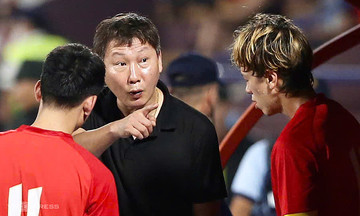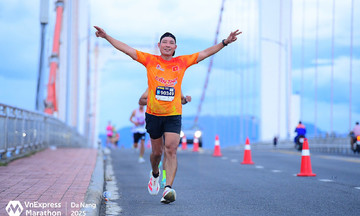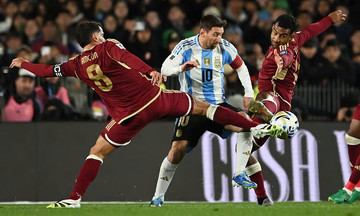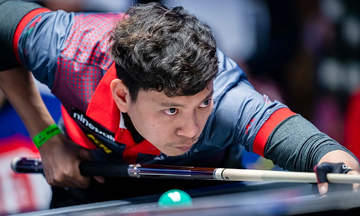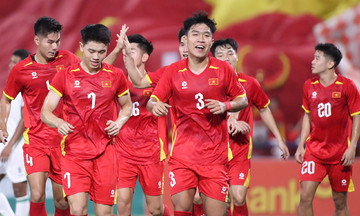That seemingly small decision led Fukuda to nearly a century on the tatami, the traditional Japanese martial arts mat, becoming an inspiration for generations. Even after her passing in 2013, her name remains synonymous with resilience and unwavering determination.
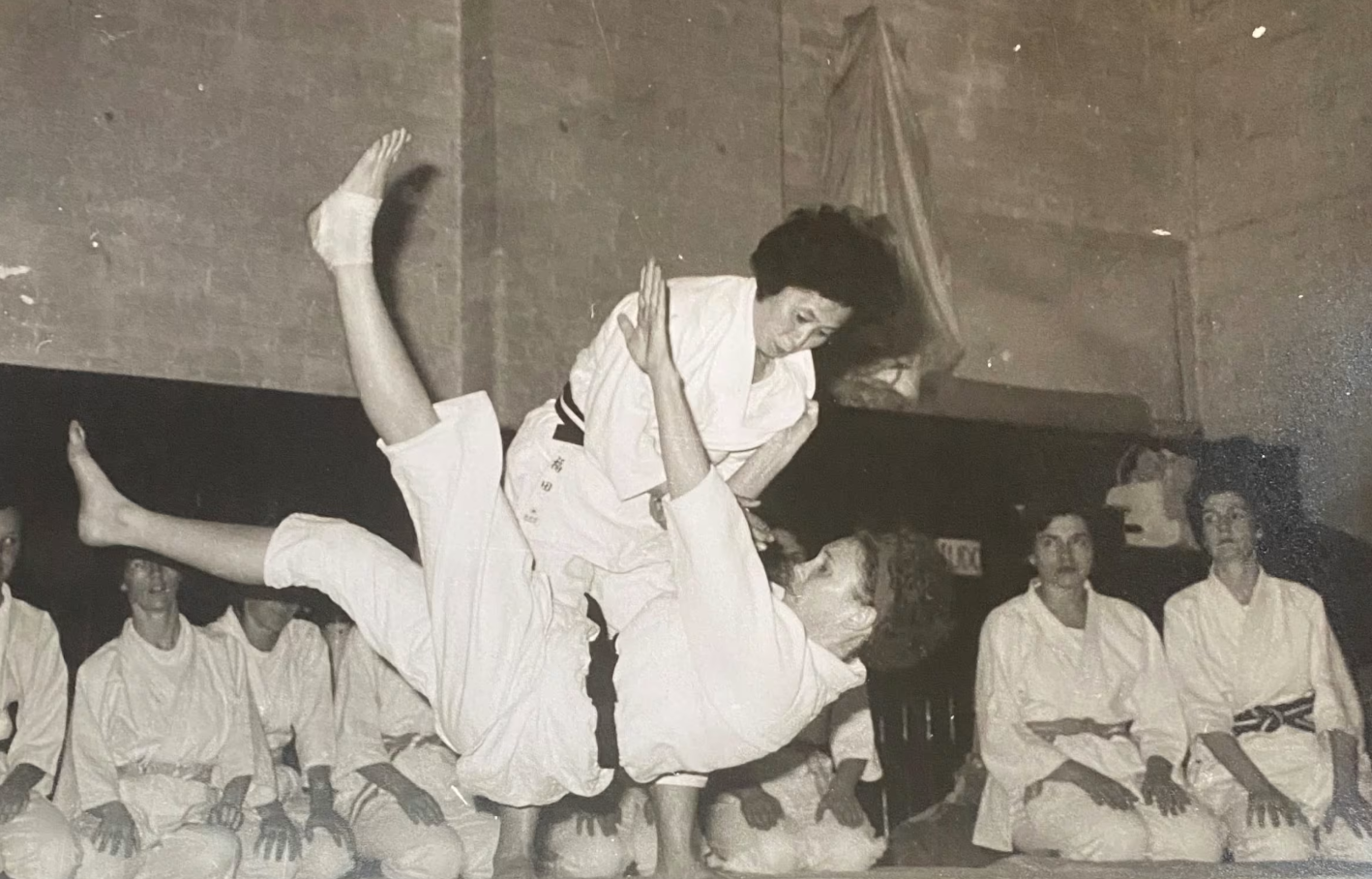 |
Shihan Keiko Fukuda demonstrates a technique in a women's judo class in San Francisco. Photo: USA Judo |
Shihan Keiko Fukuda demonstrates a technique in a women's judo class in San Francisco. Photo: USA Judo
Born in 1913 to a samurai family in Tokyo, Fukuda grew up immersed in martial arts. Her father taught samurai arts, and her grandfather was a kendo master. But instead of following the familiar path, Fukuda chose judo, a relatively new martial art at the time.
Jigoro Kano (1860-1938), with his reformist vision, invited Fukuda to join the Kodokan, the judo center he founded in Tokyo and considered the birthplace and highest authority of judo worldwide. She trained with the first group of female students. Later, Fukuda became known as Kano's longest-living student, a direct link to the founder of judo. This commitment meant rejecting an arranged marriage and embracing a life of celibacy to pursue her martial arts path.
Fukuda's career was remarkable not just for her competitive achievements or belt rank, but for her efforts to preserve often-overlooked traditions. She is considered a guardian of Joshi goshinho kata, a self-defense kata for women once omitted from the Kodokan's official curriculum. Many scholars view this as a significant contribution, as preserving the kata not only has technical value but also affirms the role of women in judo.
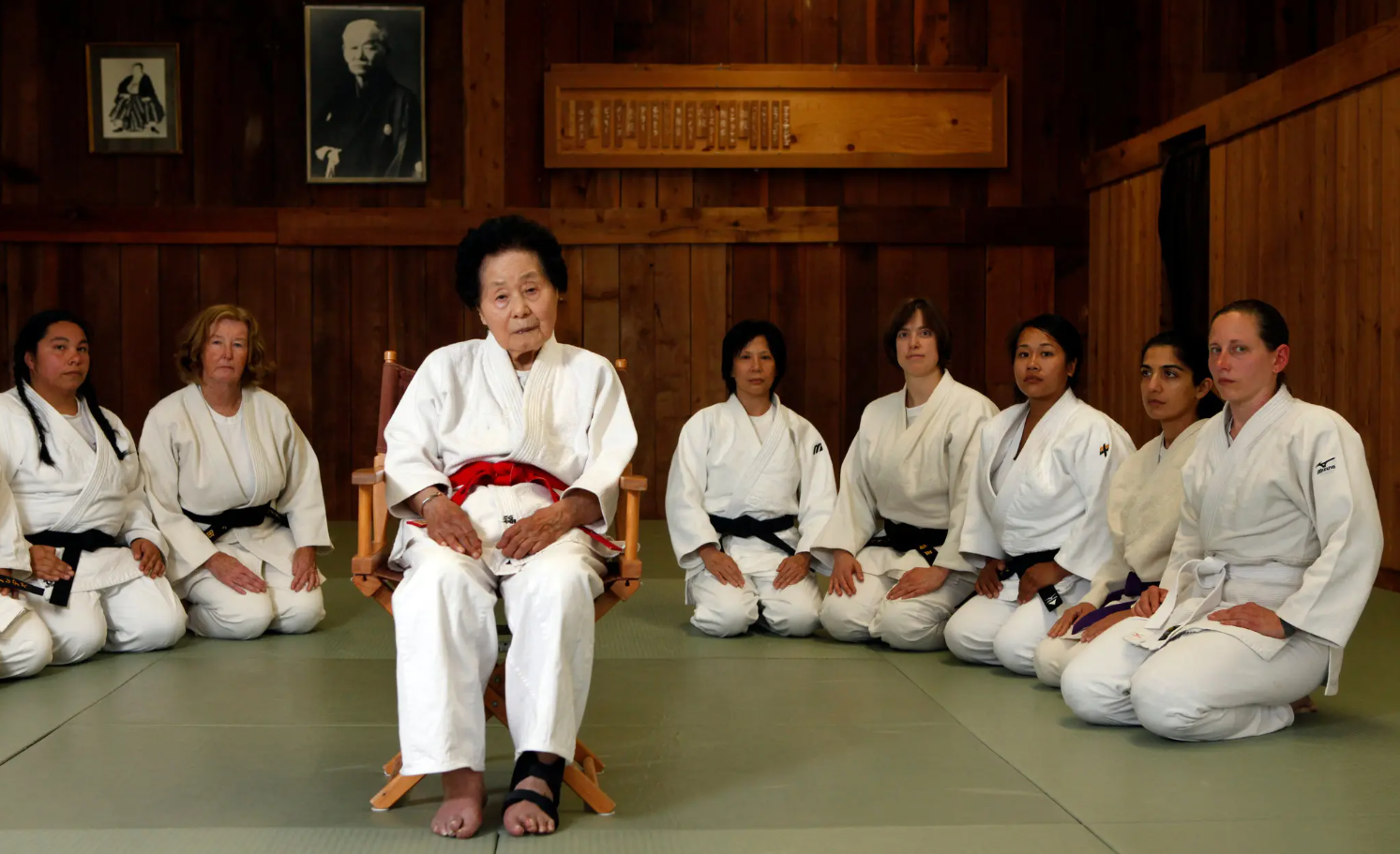 |
Keiko Fukuda with students at her San Francisco dojo, where she taught for over 40 years. Photo: The Chronicle |
Keiko Fukuda with students at her San Francisco dojo, where she taught for over 40 years. Photo: The Chronicle
Leaving Japan after World War II, Fukuda settled in San Francisco and founded the Soko Joshi Judo Club, one of the few dojos for women. In 1974, she established the annual Joshi Judo Camp, bringing together female judoka from around the world. These initiatives not only provided training opportunities but also fostered an international community where women could connect, share, and assert their place in the martial arts world.
Fukuda's philosophy is encapsulated in three words: "Be strong, be gentle, be beautiful." She believed judo cultivates not only physical strength but also character, empowering women without sacrificing their gentle nature. The image of her, well into her 90s, still practicing on the tatami became a living testament that judo transcends age and gender.
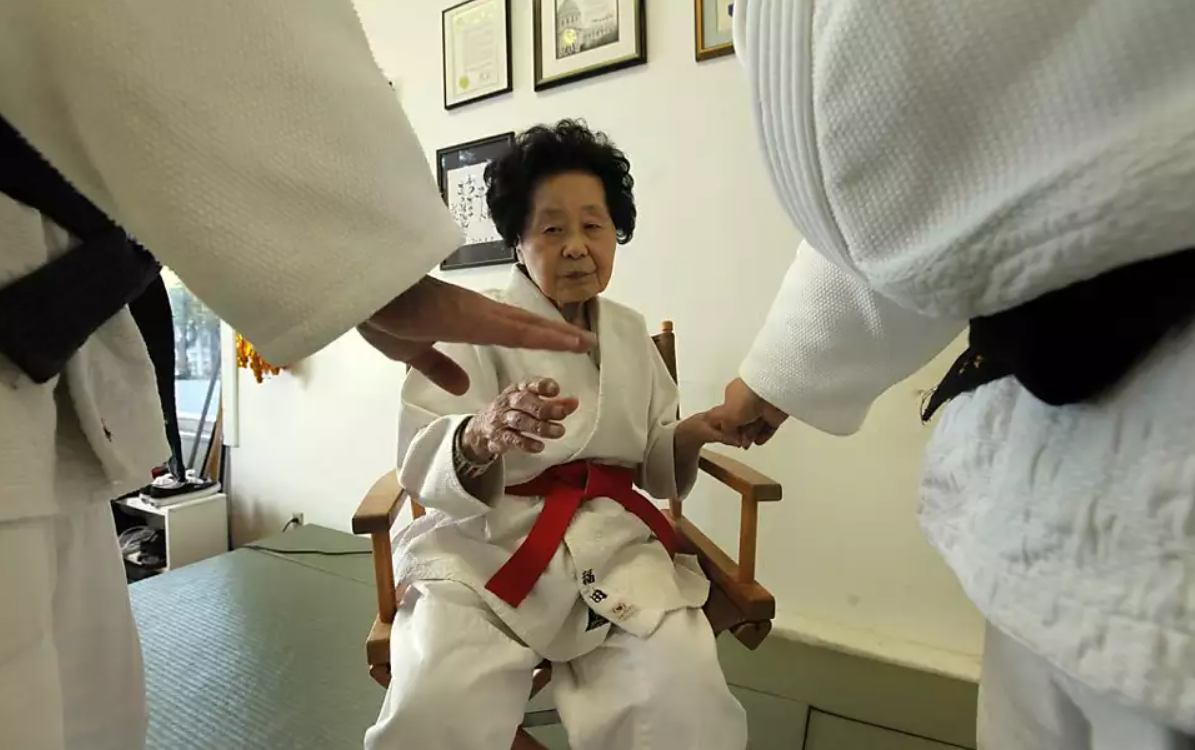 |
At 98, Sensei Keiko Fukuda teaches hand techniques to students in her women's dojo in Noe Valley, San Francisco. Photo taken on 21/7/2011. Photo: The Chronicle |
At 98, Sensei Keiko Fukuda teaches hand techniques to students in her women's dojo in Noe Valley, San Francisco. Photo taken on 21/7/2011. Photo: The Chronicle
Despite facing numerous obstacles in a time when women were largely excluded from judo's higher ranks, Fukuda persevered. In 1972, she became the first woman to be promoted to 6th dan by the Kodokan. In 1994, she achieved 9th dan, a rank almost exclusively held by men. And in 2011, at the age of 98, Fukuda was awarded 10th dan, the highest rank in judo, becoming the first and only woman in history to receive this honor.
Her contributions extended beyond martial arts. In 2006, the Japanese government awarded her the Order of the Sacred Treasure for her contributions to sports and culture. In 2012, the documentary "Mrs. Judo: Be Strong, Be Gentle, Be Beautiful" premiered, capturing Fukuda still teaching at nearly 100 years old. Her personal papers are now housed at the Schlesinger Library, Harvard University, solidifying her influence beyond the realm of martial arts.
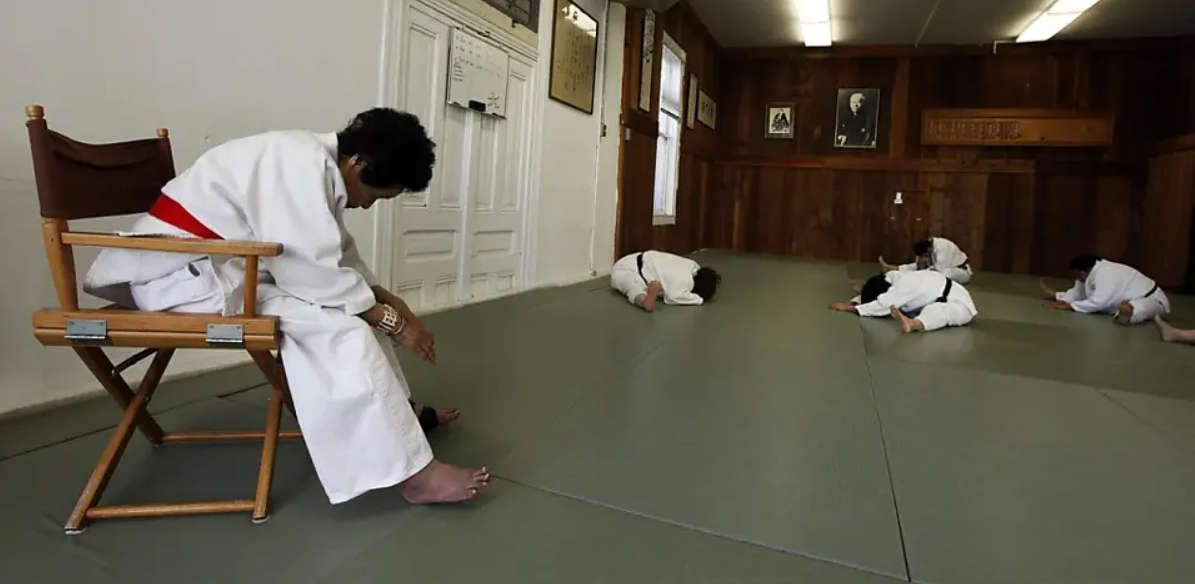 |
At 98, Sensei Keiko Fukuda warms up with students in her women's dojo in Noe Valley, San Francisco. Photo taken on 21/7/2011. Photo: The Chronicle |
At 98, Sensei Keiko Fukuda warms up with students in her women's dojo in Noe Valley, San Francisco. Photo taken on 21/7/2011. Photo: The Chronicle
Western media coverage further illustrates Fukuda's impact. Upon her death in 2013, The New York Times featured her on the front page with the headline "Trailblazer in Judo," recognizing her as a pioneer for women in the sport. The Telegraph lauded her as "the keeper of Kano's original spirit." Earlier, in the 1960s and 1970s, Black Belt Magazine featured Fukuda's presence in the US, recognizing her as a representative of the early female judoka community.
More than a decade after Fukuda's passing, her motto, "Be strong, be gentle, be beautiful," continues to resonate in judo dojos worldwide. She remains not only a martial arts legend but also a testament to the power of the human heart and will.
Compiled by Hong Duy





